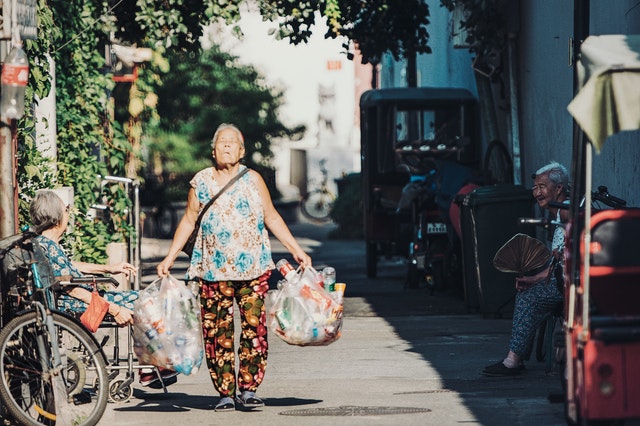Hoarding Amongst Elderly
Mental health in elderly can be affected in various ways. Some of the issues can begin as early as when they were young. With how the world of advertising and economy has gone, people find themselves over buying, spending way more than they would need and being poached to confirm to the society. No longer is simple living taken as standard, flashy materialistic wealth is considered health over mental health. Hoarding amongst elderly is not very uncommon, most being uncovered in times of hired caregiving, move into a senior living, or safety concerns.
Hoarders rarely can comprehend the underlying trauma that triggers those hoarding episodes. For hoarding in the past was a sign of the depression era or helping families navigate through calamities, catastrophes, where there was not enough food but enough mouths to feed.
My past career has taken me across many such hoarding scenarios, some as shared by family and some by others. I remember one instance, where an elderly lady’s home was so over cluttered that movement was impossible, as per the son, but what I found during her visit to our office was that she even felt connected to a rubber tie… as I started to pack her bottle of medications. In other instance, a gentleman brought me a bottle from thirty years ago, asking if the medication was valid. A visit to an elderly in an assisted living showed me how unsafe a home could become with cluttering and special medical equipment. In the elderly hoarder’s mind, everything is of value and precious, unless there is a clear reason for it not to be. In either case we went on to solve their problems, but we also learned many lessons and details that I would like to share today.
Here are some key takeaways in no special order:
- Hoarding can happen anytime, anywhere, be it in a home or senior living or even in someone else’s home.
- People who hoard mostly do not recognize this.
- A careful history is important to get the right help.
- Testing for cognition is as important as for psychological interventions.
- It can pose a health hazard, making it unsafe to live due to chemical, germs and unhealthy environment.
- It can be confused with hobby collection or generational hand me downs.
- It is not about the price but mostly about the satisfaction of attaining it, rather than enjoying it hence a careful home assessment is needed before embarking on the next step.
- Our elderly hoarders have lot of nostalgic memories and it is a fine line between disrespecting someone vs caring for them through dislodging the hoarding…
- It cannot be solved overnight and there is a process to tackle each step.
- It is good to know how the family dynamics or structure works before getting an assessment by a Geriatrician.
- It is best to understand what type of hoarding is taking place? What things or materials ? As some of them can be translated to phobias or personal grief.
- The living situation is of importance as oversight is difficult in an elderly’s home vs senior living.
- Moving an elderly into senior living to distract them from hoarding is not easy and needs counseling for all in that family.
- Making sure the elderly is involved in decluttering can help with future success.
- Approaching each elderly as an individual is critical for prevention of future episodes.
- Understanding how hoarding affects safety and security is as crucial as knowing what is being hoarded.
- It should never be stigmatized .
- A thorough psychiatric examination by a Geriatric psychiatrist is sometimes necessary to understand the presence of any underlying disorders.
- Hoarding does have an impact on hospitalization and re hospitalization rates, morbidity and mortality.
- Hoarding is not entirely preventable due to the above reasons. Having rules and regulations in place and making sure families and elderly understand can be a win win for all in any given situation.
With many more reasons to discuss on hoarding, it is best to be open to dialogues, open ended discussions making sure that it is a responsibility of our societies and communities we live in. Underlying trauma is one of the many reasons for hoarding. If people can be more humane in their interactions and if we were to become a better world, a lot of these can be prevented. The essence of joy through self love, self respect and dignity must be encouraged vs the instant gratification through buying sprees and material wealth. With baggage comes misery as they say, hoarding does not affect the elderly exclusively, it is found in every sphere of our own lives. We thank you all for reading, we hope to bring more dynamics to such blurred conundrums, until next time, we wish everyone mihygge and mental well being.
